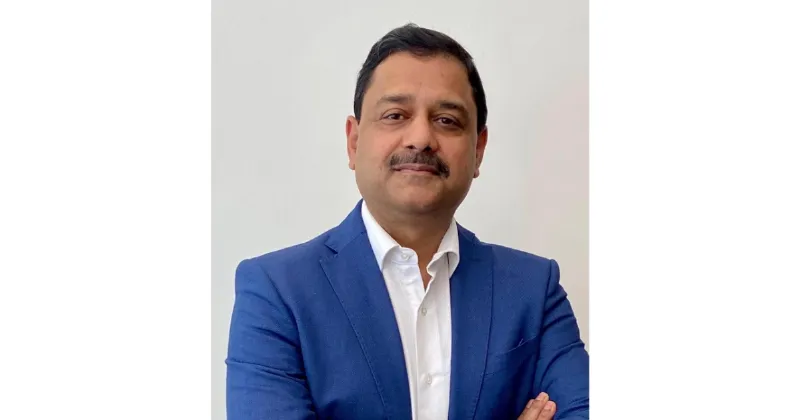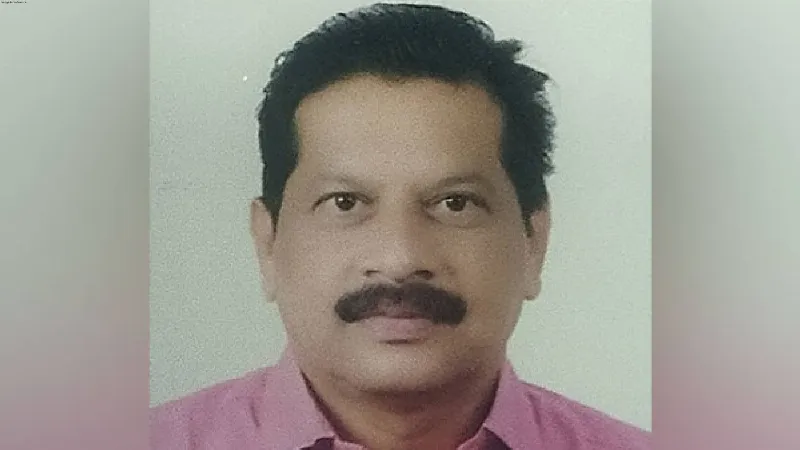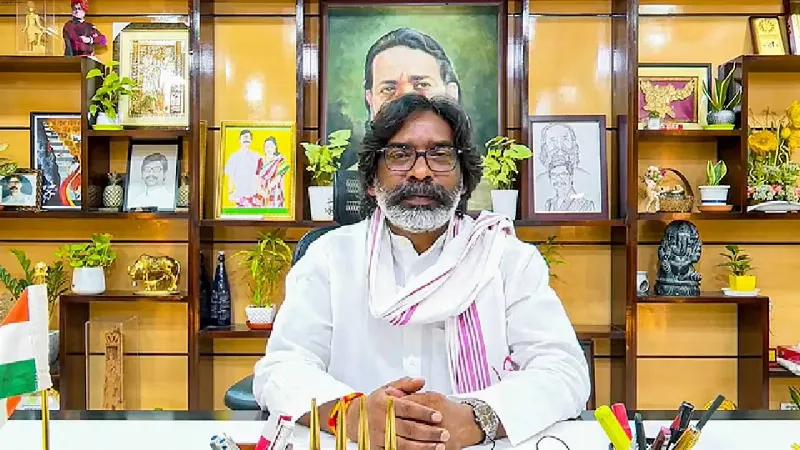Latest News
Insights and Advice from Best Doctors on Kidney Health: World Kidney Day 2024

New Delhi: On World Kidney Day, the world pauses to reflect on the importance of kidney health, a vital yet often overlooked aspect of overall well-being. In this article, esteemed doctors share their invaluable insights and advice to raise awareness about kidney health and disease prevention. With a collective wealth of expertise and experience, these medical professionals offer guidance on maintaining optimal kidney function, identifying risk factors for kidney disease, and adopting lifestyle practices conducive to kidney health. Through their expert perspectives and practical recommendations, readers will gain a deeper understanding of the significance of kidney health and the steps necessary to safeguard it.
Dr. Sundar Sankaran, MD, DNB (Nephrology), FRCP (Glasgow) FISOT, Ex-Chairman Indian Society of Nephrology SC, Ex Adjunct Professor of Nephrology, MAHE, Program Director-Aster Institute of Renal Transplantation, Aster Whitefield Hospital, Bangalore
The theme for World Kidney Day 2024 is "Kidney Health for all." Chronic Kidney Disease (CKD) affects over 850 million people globally, causing over 3 million deaths in 2019. It's currently the 8th leading cause of death and projected to be the 5th by 2040 if unaddressed. Nephrologists advocate for policy changes, raise awareness, educate healthcare professionals and patients, and implement programs to address disparities in kidney care access. The goal is universal support for optimal kidney health, irrespective of socioeconomic status. Initiatives like the Pradhan Mantri National Dialysis Program and dialysis units by the CM of Karnataka are appreciated for combating CKD. As a Transplant Nephrologist, advocating for organ donation is emphasized, highlighting its life-saving potential. Organ Donation is hailed as the Gift of Life, urging everyone to become organ donor crusaders.
Dr. Jayant Thomas Mathew, MD (Internal Medicine), DM (Nephrology), FRCP (Edinburg, UK), Senior Consultant Nephrologist, Lisie Hospital, Cochin, Kerala
Kidney Disease is a “Silent Killer”. Over 10% of the adult population has some form of kidney damage. As most of the kidney diseases are asymptomatic in the early stages, the individual is unaware that his kidneys are damaged. Once the disease progresses irreversibly, the only treatment options available are dialysis or kidney transplantation. However, if detected early, the disease can be controlled or even reversed in some cases. So it is very important to screen for kidney disease annually in every adult and more frequently in persons at increased risk (diabetics, hypertensives, obese persons, smokers, those with relatives who have kidney disease, etc.). Check for the presence of protein in the urine and monitor Creatinine levels in the blood. If they are abnormal, get evaluated by a Nephrologist. Eat healthy, avoid junk food, drink an adequate amount of water, exercise regularly, avoid smoking and get enough sleep. Protect your kidneys!
Dr. Yasir S Rizvi, DM Nephrology (AIIMS), Former Head of Nephrology, VMMC and Safdarjung Hospital, Delhi. Presently, Associate Director of Nephrology And Renal Transplant at Dharamshila Narayana Superspeciality Hospital, Delhi
On World Kidney Day 2024, the spotlight shines on kidney health in India, confronting the escalating prevalence of kidney diseases. Chronic kidney disease (CKD) burdens India, driven by factors including diabetes, hypertension, lifestyle choices, and limited healthcare access. Millions face risk, often unaware until CKD progresses. The day serves as a pivotal platform for preventive education, lifestyle shifts, and early detection. India endeavours to bolster kidney care infrastructure, advocate for regular health screenings, and disseminate risk awareness. Emphasizing prevention, urging healthier lifestyles, and regular screenings for diabetes and blood pressure are imperative. Despite strides in healthcare access, rural-urban disparities persist. Collective action from government, healthcare stakeholders, and the populace is indispensable. As World Kidney Day unfolds, India echoes the call for heightened awareness, early intervention, and equitable healthcare, envisioning a healthier future for those grappling with kidney ailments.
Dr. Priya Pathak, MD Pathology (UCMS, Delhi) PDCC Renal and Transplant Pathology (Gujarat University of Transplant Sciences), Senior Consultant Nephropathologist and Transplant Immunologist, The American Laboratory, Shri Balaji Group of Hospitals, Raipur
Dr. Priya Pathak, serves as a Senior Consultant Nephropathologist and Transplant Immunologist at The American Laboratory alongside Shri Balaji Group of Hospitals, Raipur. Recognizing the critical role of laboratory services in kidney health management, Dr. Pathak advocates for the integration of immunology, microbiology, and pathology facilities at primary healthcare levels for early disease detection and monitoring. Moreover, she emphasizes the importance of raising public awareness about cadaveric transplantation, a life-saving procedure for individuals with CKD. At her centers in Raipur, Dr. Pathak is dedicated to establishing robust nephropathology and transplant immunology setups. These initiatives aim to facilitate the management of both live donor and cadaveric transplant procedures, along with post-transplant kidney health monitoring, ensuring comprehensive care for patients with kidney diseases.
Dr Mayoor V Prabhu, MD, DNB (Neph), FASN - Professor & Head, Dept of Nephrology, KMC Mangalore, Senior Consultant Nephrologist at KMC Hospital, Dr Ambedkar Circle, Mangalore
The theme “Kidney Health for All-Advancing equitable access to care and optimal medication practice” couldn’t be more apt for World Kidney Day in our country, where scarcity of resources remains a significant hindrance to comprehensive renal care. Rapidly increasing population and the epidemic of diabetes only point towards increasing numbers in the future. Optimal medication practice is one key area of focus in the prevention of kidney disease. Indiscriminate and over-the-counter use of some medications without medical supervision can cause significant damage to the kidneys. Events like WKD can play a major role in increasing public awareness about kidney disease and the importance of early detection in preventing its progression. It is also heartening to note the increasing Government programmes focusing on kidney disease and dialysis, which offers hope towards making kidney care more equitable and accessible to all.
Dr. Munindra Kumar, MD (Med), DNB (Nephrology-Sir Ganga Ram Hospital), MRCP-SCE (Nephro), RCP(Glasgow, Edin &U K), CCEBDM(Diabetology), Former Consultant, Manipal Hospital, New Delhi. Columbia Asia Hospital, Gurugram - Medical Director & CO-Founder of Nephrus India (Chain of Dialysis & Kidney Care Centres)
On World Kidney Day 2024, Nephrus extends sincere wishes for the enduring health and prosperity of patients, caregivers, and fellow healthcare professionals. Committed to equitable renal care, Nephrus endeavors to elevate hemodialysis to the status of renal transplant, ensuring accessibility across diverse locales. Through relentless efforts, world-class hemodialysis facilities now thrive even in remote regions once devoid of such services. Highlighting the significance of nutritional management, particularly for diabetic kidney disease patients, Nephrus emphasizes high-quality protein diets with salt restrictions, while cautioning against high-potassium fruits such as Banana etc, juices, and dry fruits like cashew nuts, figs, and raisins for better health. Additionally, advocating for graded exercise tailored to individual needs underscores the integral role of physical well-being in overall health. Nephrus extends heartfelt wishes for a future marked by robust health, vitality, and productivity, fostering collaborative efforts towards a world where kidney health is universally prioritized and accessible.
Dr. Vaishnavi Pochineni MD, FACP, FASN, American Board Certified in Internal Medicine and Nephrology, Transplant Nephrology fellowship at Mayo Clinic, Now Practicing in Hyderabad, Telangana
Stress affects everyone, but it hits dialysis patients especially hard. Their daily life is a mix of physical changes, like feeling tired all the time, struggling to eat, and losing weight, along with dealing with work and relationships. It is a unique experience for every dialysis patient and how they cope varies. Some lean on their personality and support from loved ones, while others find solace in books, religious communities, or staying active on days they don't have dialysis. For those living with kidney disease, it's crucial to find healthy ways to handle the extra stress. Keeping feelings bottled up isn't the way to go. Self-help is great, but having support from family, friends, and others who care can make a big difference. We as doctors who specialize in kidney care i.e Nephrologists and transplant physicians, play a key role in helping patients manage all aspects of their illness. It's about treating the whole person, not just their kidney problems.
Dr. Abhishek K. Shirkande, DNB Nephrology MD Medicine, Gold Medalist, Consultant Nephrologist & Kidney Transplant Physician, S.L. Raheja-Fortis Hospital, K.J. Somaiya Hospital, Holy Family Hospital, Mumbai
In the diabetic young age group of 35 to 40, there's a concerning rise in Chronic Kidney Disease (CKD) cases. CKD affects over 10% of the global population, surpassing 800 million individuals. More prevalent in older individuals, women, and racial minorities, CKD often accompanies diabetes mellitus and hypertension. As a leading cause of global mortality, CKD has seen a notable increase in associated deaths over the past two decades. Given its widespread impact, there's an urgent need for improved prevention and treatment measures. Type 2 diabetes significantly heightens the risk of end-stage kidney disease (ESKD), with diabetic nephropathy (DN) emerging as its primary cause. The younger onset of diabetes poses a higher risk of ESKD, with incidence rates rising with longer diabetes durations. This underscores the critical importance of early intervention and effective management strategies in mitigating the progression of CKD in diabetic populations, particularly those with an earlier onset of the disease.
Dr. Neha Singh, MBBS, MD (Medicine), DM (Nephrology), Consultant Nephrology, Gurgaon
The Global Burden of Disease collaboration underscores chronic kidney disease (CKD) as a significant contributor to global morbidity and mortality. In India, CKD-related deaths doubled from 1990 to 2016, with a notable portion of patients succumbing to kidney failure without dialysis. The country faces a burgeoning population of diabetes and hypertension, primary drivers of renal failure. Dialysis, while life-sustaining, poses substantial mental and financial burdens on patients and families, with infection risks and loss of productivity. Prioritizing kidney transplantation and organ donation awareness offers a promising solution. Renal transplant recipients exhibit significantly higher survival rates compared to dialysis patients. Key preventive measures include early nephrologist referral, expanding dialysis infrastructure, promoting alternative dialysis modalities, and ensuring equitable access to kidney transplants for all end-stage renal disease patients. Increasing awareness and government support can mitigate CKD's escalating toll on public health and finances.





















